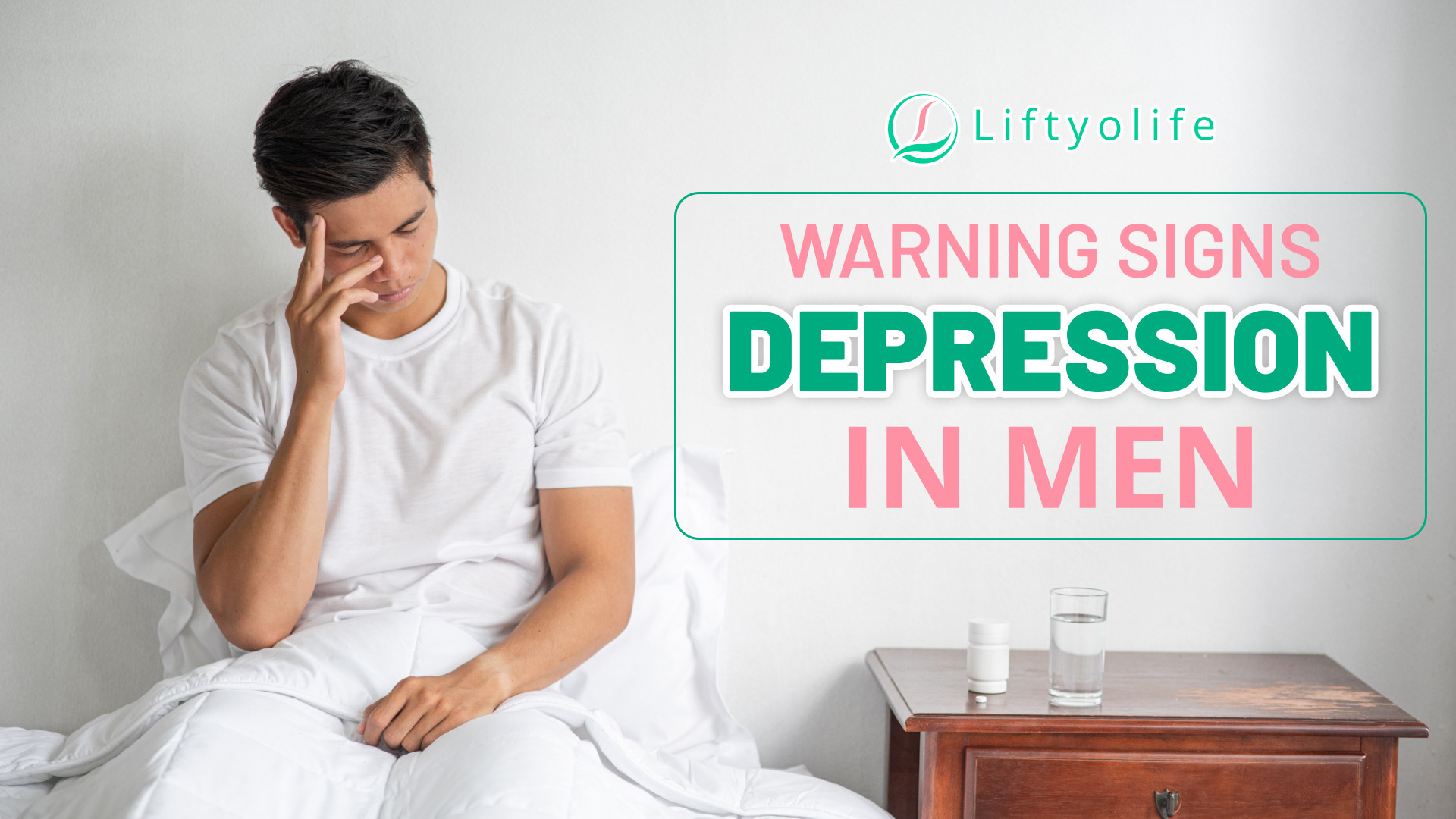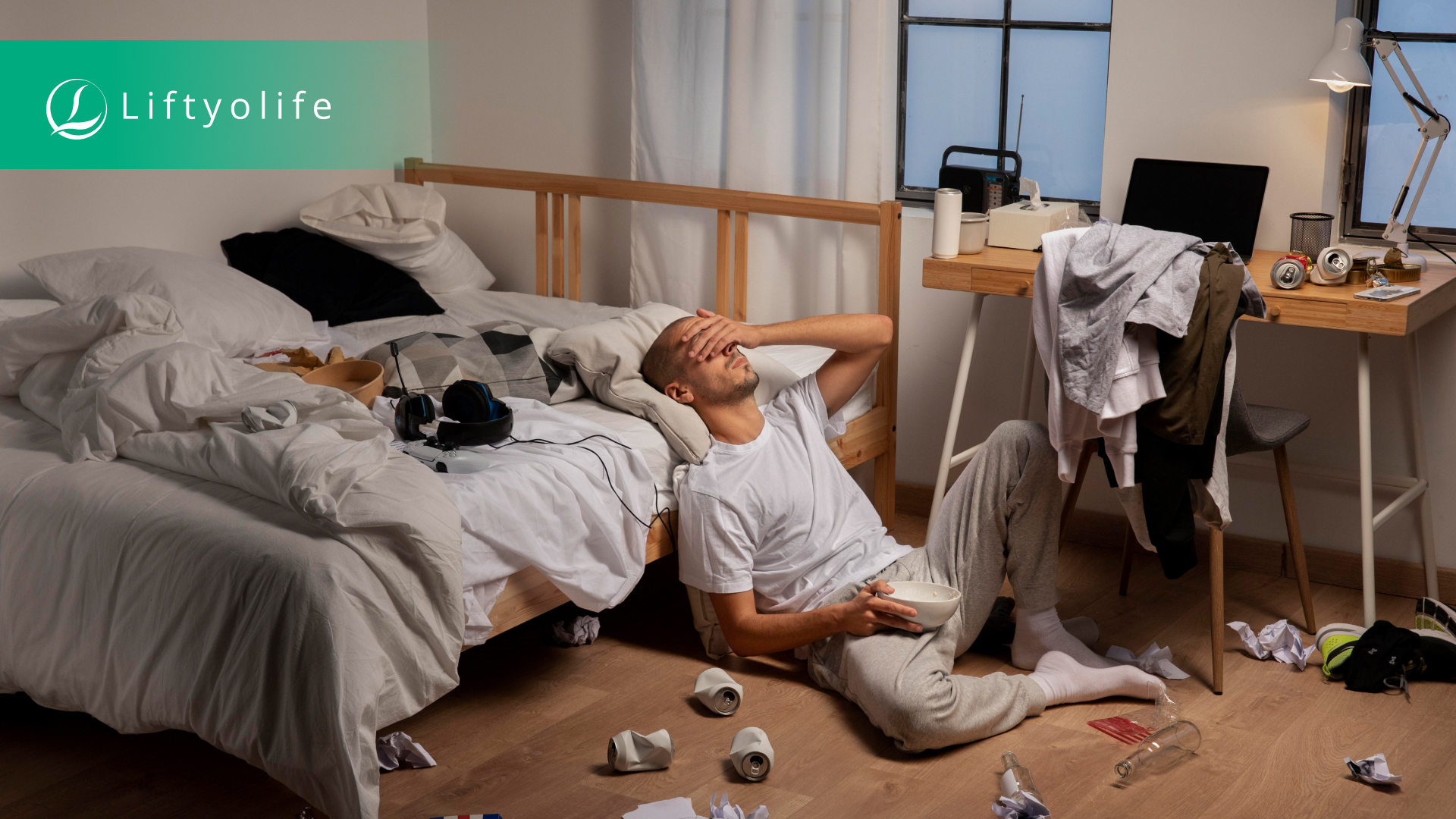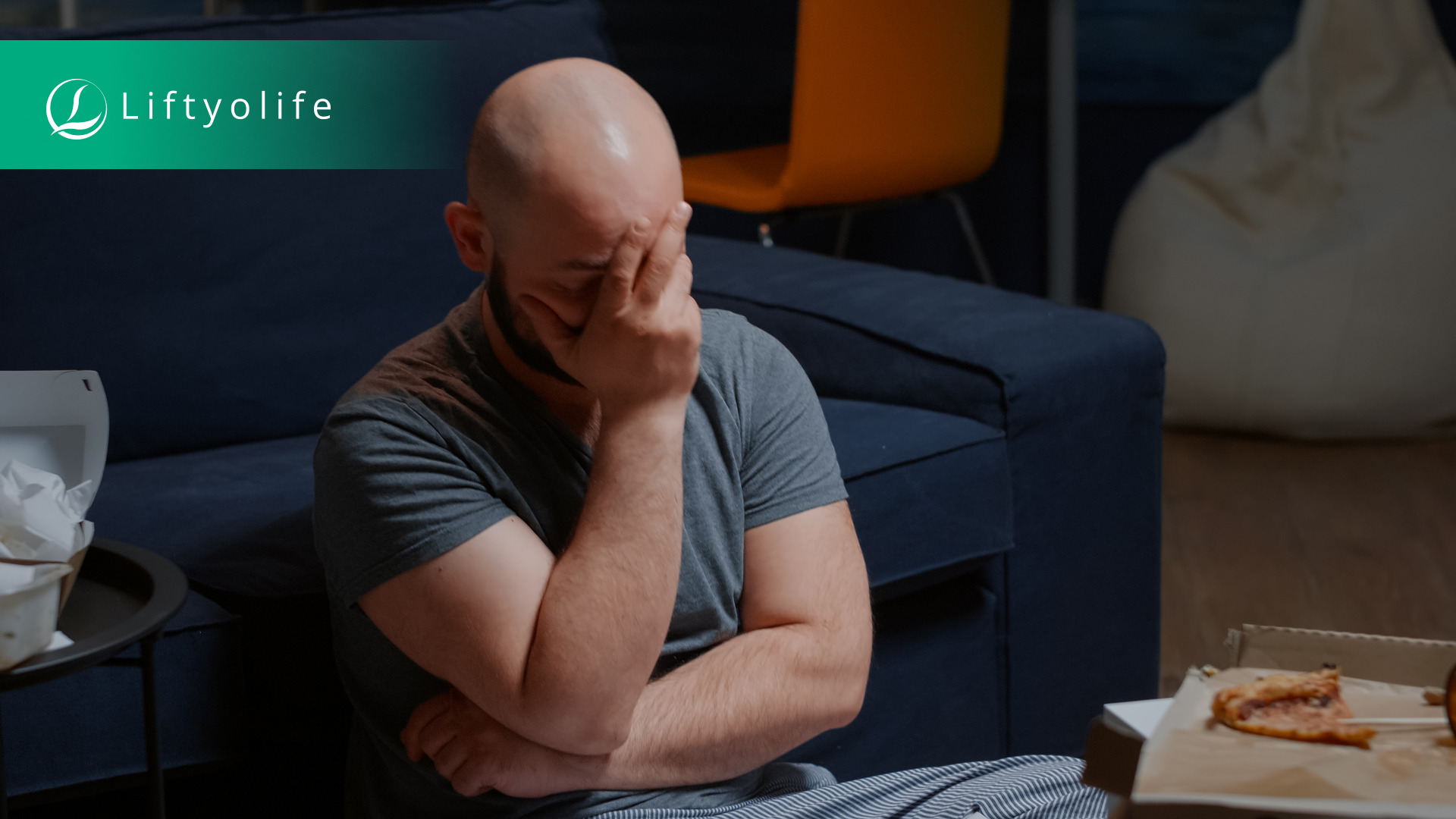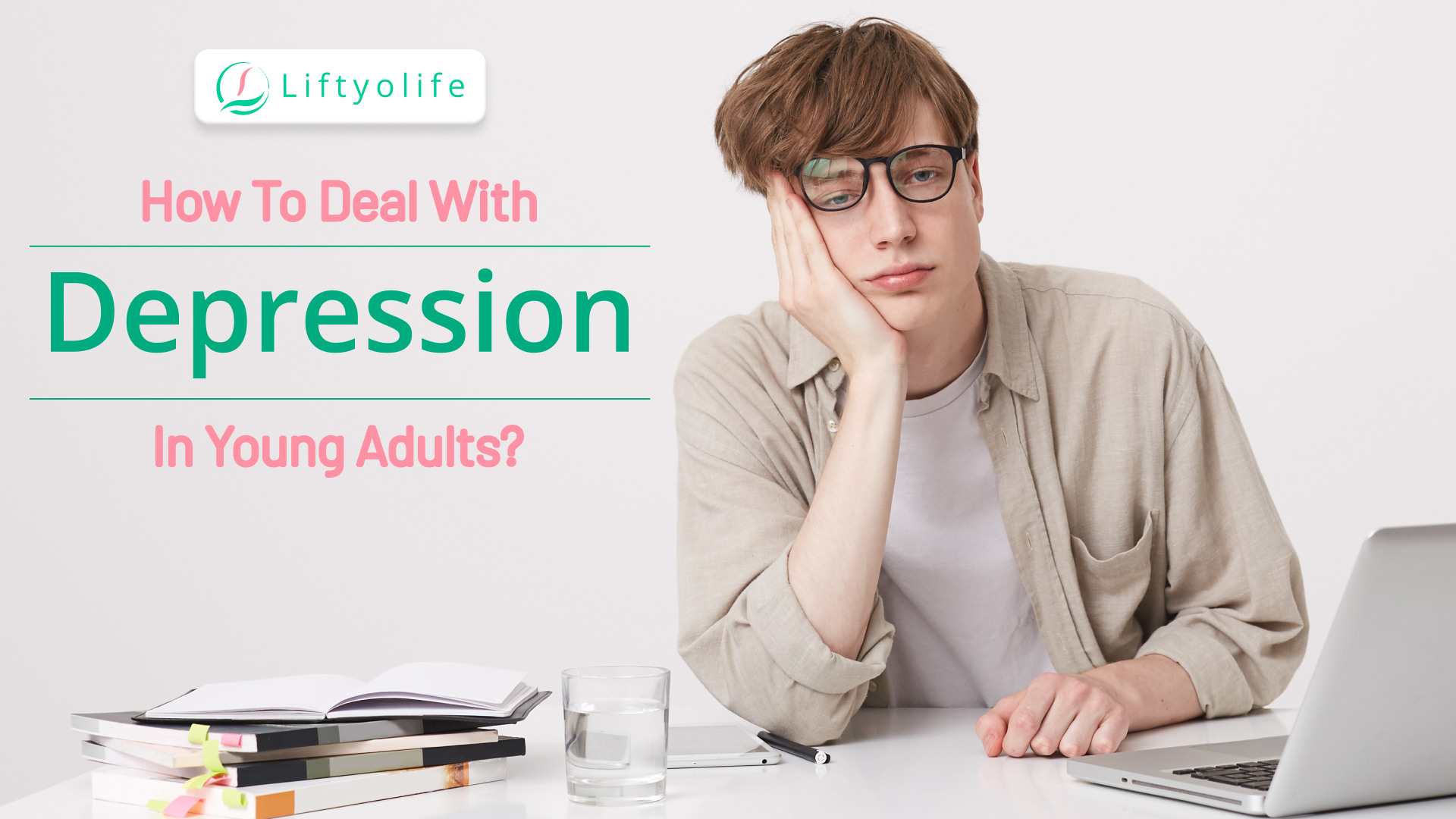Depression In Men: Early Warning Signs & Treatment

Depression in men should be prioritized among mental health issues that require treatment as soon as possible. When we are hopeless or overwhelmed by despair, we frequently deny or conceal our feelings. However, depression is a common problem that many of us will face at some point in our lives, and it is not a sign of emotional weakness or a lack of masculinity. Depression is not a shame; instead, confront it and treat it. Explore more about this mental illness with Liftyolife (liftyolife.com) via this article.
1. What is male depression?
Depression is a common and serious mood disorder with severe symptoms. Depression impairs one’s ability to feel, think, and manage day-to-day activities. To be diagnosed with depression, a man must have symptoms for at least two weeks. This is also known as major depressive disorder or clinical depression.
Millions of men are affected by depression and those who care about them—spouses, partners, friends, and family.
Both genders suffer from depression, but their willingness to discuss their feelings may differ significantly. This is why men and women may experience very different depression symptoms.
Several men may turn to drugs or alcohol to cope with their emotional symptoms. Men living with depression are four times more likely than women to commit suicide, so it’s critical to seek help for depression before feelings of despair turn into suicidal thoughts.
2. Symptoms of depression in men

Symptoms of depression in men
2.1. Mental symptoms
Mental symptoms are signs that the patient must detect on their own. People suffering from this disease may not realize they have depression and may be unable to ask for help from those around them, thereby making it difficult to detect and treat on time.
These symptoms may reduce a person’s ability to think and process information, influencing behavior and emotions.
The following are some typical mental symptoms of depression in men:
- memory problems,
- inability to concentrate,
- racing thoughts,
- obsessive-compulsive thought patterns,
- suicidal thoughts,
- sleep problems, difficulty falling or staying asleep.
2.2. Physical symptoms
Men suffering from depression may first notice physical symptoms. While depression is commonly thought to be a mental health disorder, it can also manifest physically.
Men who are depressed may experience the following symptoms:
- erectile dysfunction and other sexual problems,
- pain,
- hormonal issues like low testosterone,
- headaches,
- unintended weight loss (and sometimes weight gain),
- eating too much or too little,
- racing heart, or heart palpitations,
- sleeping too much or too little,
- feeling restless or agitated,
- tightness in the chest,
- joint, limb, or back pain,
- digestive problems like gas, diarrhea, and constipation,
- tiredness.
Some of these symptoms may arise due to depression’s effect on a person’s brain chemicals. Depression alters serotonin and norepinephrine levels, brain messengers that regulate pain and mood.
2.3. Emotional symptoms
Women suffering from depression may express this as sadness, whereas some men may be less comfortable expressing this emotion outwardly. Changes in their emotional state may thus manifest in other ways.
Early signs of depression in men can include an increase in:
- agitation,
- suicidal thoughts,
- restlessness,
- anger,
- lack of interest in family, hobbies, community, and work,
- hopelessness,
- aggression,
- lack of libido,
- emotional withdrawal from friends, family, and colleagues,
- frustration,
- irritability.
These disparities could be attributed to societal expectations about how men and women express emotion. Men are likely to be less willing to express certain emotions, such as sadness if they believe others will judge or criticize them for doing so.
Suicidal ideation is common in men suffering from depression.
3. Behavioral signs of depression in men
Depression’s mental, physical, and emotional symptoms in men can all impact their behavior. Because some men are resistant to discussing their emotions, their behavioral symptoms of depression are often visible to others.
Men suffering from depression may exhibit the following behavioral changes:
- drinking more or taking drugs,
- working obsessively without taking proper breaks,
- becoming more controlling or abusive in relationships,
- avoiding family or social situations,
- hard to keep up with work, family, or other responsibilities,
- engaging in risky activities (driving recklessly or having unprotected sex).
4. What are the different types of depression?
Types of depression include:
- Major depressive disorder (MDD): Major depression (clinical depression) is characterized by intense or overwhelming symptoms that last for more than two weeks—these symptoms impact daily life. Major depression manifests itself differently in each individual. Depending on how you feel as a result of your depression, it could be:
- Anxiety causes distress. Most days, you are tense and restless. You can’t concentrate because you’re afraid something terrible will happen, and you’re worried you’ll lose control.
- Melancholy. Even when good things happen, you feel bad. You experience intense sadness and lose interest in the activities you once enjoyed.
- Agitated. The majority of the time, you are uneasy.
- Persistent depressive disorder (PDD): PDD is also referred to as dysthymia. PDD symptoms are milder than those of major depression. However, PDD symptoms can last for up to two years.
- Bipolar depression: It is characterized by alternating periods of low mood and extremely high energy (manic). During the down period, they may experience depression symptoms such as sadness, hopelessness, or a lack of energy.
- Psychotic depression: Psychotic depression is characterized by severe depressive symptoms and delusions or hallucinations. Delusions are unfounded beliefs in things, whereas hallucinations involve seeing, hearing, or being touched by things that aren’t there.
- Seasonal affective disorder (SAD): Seasonal depression (a seasonal affective disorder) typically begins in late autumn or early winter. During the spring and summer, it frequently disappears.
- Minor depression: Minor depression is similar to major depression and persistent depressive disorder, but the symptoms are less severe and may last for a shorter period.
- ‘Situational’ depression: In psychiatry, this is not a technical term. However, a depressed mood can occur when you struggle to cope with a stressful event in your life, such as a family member’s death, a divorce, or losing your job. This is what your doctor may refer to as “stress response syndrome.”
- Atypical depression: A positive event can temporarily improve your mood if you suffer from atypical depression. This is distinct from the persistent sadness associated with typical depression. It is regarded as a “specifier” that describes a set of depressive symptoms.

What are the different types of depression?
5. What causes depression in men?
Various factors can cause depression in men:
- Genetic factors: Men with a family history of depression may be more likely to develop the illness than those whose family members do not suffer from it.
- Brain chemistry: Changes in the brain’s chemical levels can lead to depression.
- Environmental stress: Financial problems, the loss of a loved one, significant life changes, a complicated relationship, work problems, or any stressful situation may cause depression in some men.
- Medication: Depression is a side effect of some medications. Recreational drugs and alcohol can also cause or worsen depression.
- Illness: Depression can coexist with other severe medical conditions like diabetes, cancer, heart disease, or Parkinson’s disease.
- Personality: People who are easily overwhelmed or struggle to cope may be predisposed to depression.
6. Why is depression in men often undiagnosed?
In general, men are socialized by society to suppress their emotions. Many men’s physical, emotional, and mental well-being may be jeopardized in their efforts to maintain these social norms. Moreover, many men are never taught to recognize the less common signs of depression.
Some men never seek help for depression because they fail to recognize the symptoms. In contrast, some men who identify the signs may find it challenging to discuss their experiences since they are afraid of being judged by others.

Why is depression in men often undiagnosed?
As a result, when many men show signs of depression, they begin to work long hours or otherwise fill their time to keep busy, rather than addressing the depression itself.
According to the Centers for Disease Control and Prevention (CDC) data from 2013–2016, women are nearly twice as likely as men to suffer from major depression. (1) However, because men are more likely than women to avoid reporting depression, the figures for men may be higher. Suicide rates among men are high, particularly among those who have served or are currently serving in the military. Men are also 3 to 4 times more likely than women to commit suicide. (2)
7. Male depression and suicide
Men are more likely to succeed in suicide than women. This is due to men’s:
- Use methods that are more likely to result in death, such as firearms.
- Substance abuse, risk-taking, and poor impulse control.
- Suicidal thoughts may cause them to act more rashly.
- Some men are reluctant to seek professional health care.
- Show fewer warning signs, such as discussing suicide.
8. Why is depression in men so hard to accept?
Cultural expectations frequently cause depression in men. Men are expected to achieve success, so they always keep their emotions in check. On the other hand, men may express aggression and anger, which is viewed as more acceptable “tough guy” behavior. Some of the actual symptoms of depression can be hidden behind cultural expectations.
9. How is depression in men treated?
- Non-Medication
- Lifestyle: In mild cases of depression, daily exercise, a specific sleep routine, and spending time with people you care about can help alleviate some symptoms.
- Psychotherapy: Psychotherapy, also known as “talk therapy,” is a broad term that refers to the treatment of depression through discussion with a licensed mental health professional about your triggers and responses. Various types of psychotherapy can be used to treat depression:
- Cognitive-behavioral therapy (CBT): This brief therapy aims to replace harmful and ineffective thought patterns with more realistic and useful ones. This treatment focuses on specific steps for managing and reducing symptoms.
- Problem-solving therapy: This treatment teaches people how to manage the adverse effects of stressful life events.
- Interpersonal “talk” therapy: Counseling or psychotherapy is talking with a mental health professional. Your counselor will help you in addressing your issues and developing coping skills.
- Brain stimulation therapy: People suffering from severe depression or depression with psychosis may benefit from brain stimulation therapy. Electroconvulsive therapy (ECT), transcranial magnetic stimulation (TMS), and vagus nerve stimulation (VNS) are all forms of brain stimulation therapy.
- Alternative medicine: People suffering from mild depression or persistent symptoms can benefit from complementary therapy. Massage, acupuncture, hypnosis, and biofeedback are all forms of treatment.
- Medication
Depression is treated with a variety of medications in both men and women. These are some examples: (3)
- Tricyclic antidepressants (TCAs).
- Serotonin-norepinephrine reuptake inhibitors (SNRIs).
- Selective serotonin reuptake inhibitors (SSRIs).
- Monoamine oxidase inhibitors (MAOIs).
It can take some weeks for antidepressants to become effective. It is critical to continue taking the medication for this length of time before making any decisions.
Collaboration with your care physician or psychiatrist is essential, and any side effects should be reported. Never discontinue antidepressant medication without first consulting your doctor. Stopping treatment abruptly can result in withdrawal symptoms and worsening depressive symptoms.
While recent discussions about mental health have become more candid and inclusive, many men still find it difficult to express their emotions in a society that maintains traditional views about men. Depression in men is no longer a personal health issue but rather a common medical problem. Liftyolife (liftyolife.com) provides authoritative and up-to-date health information. Please join us on our journey.
==> Read More:







